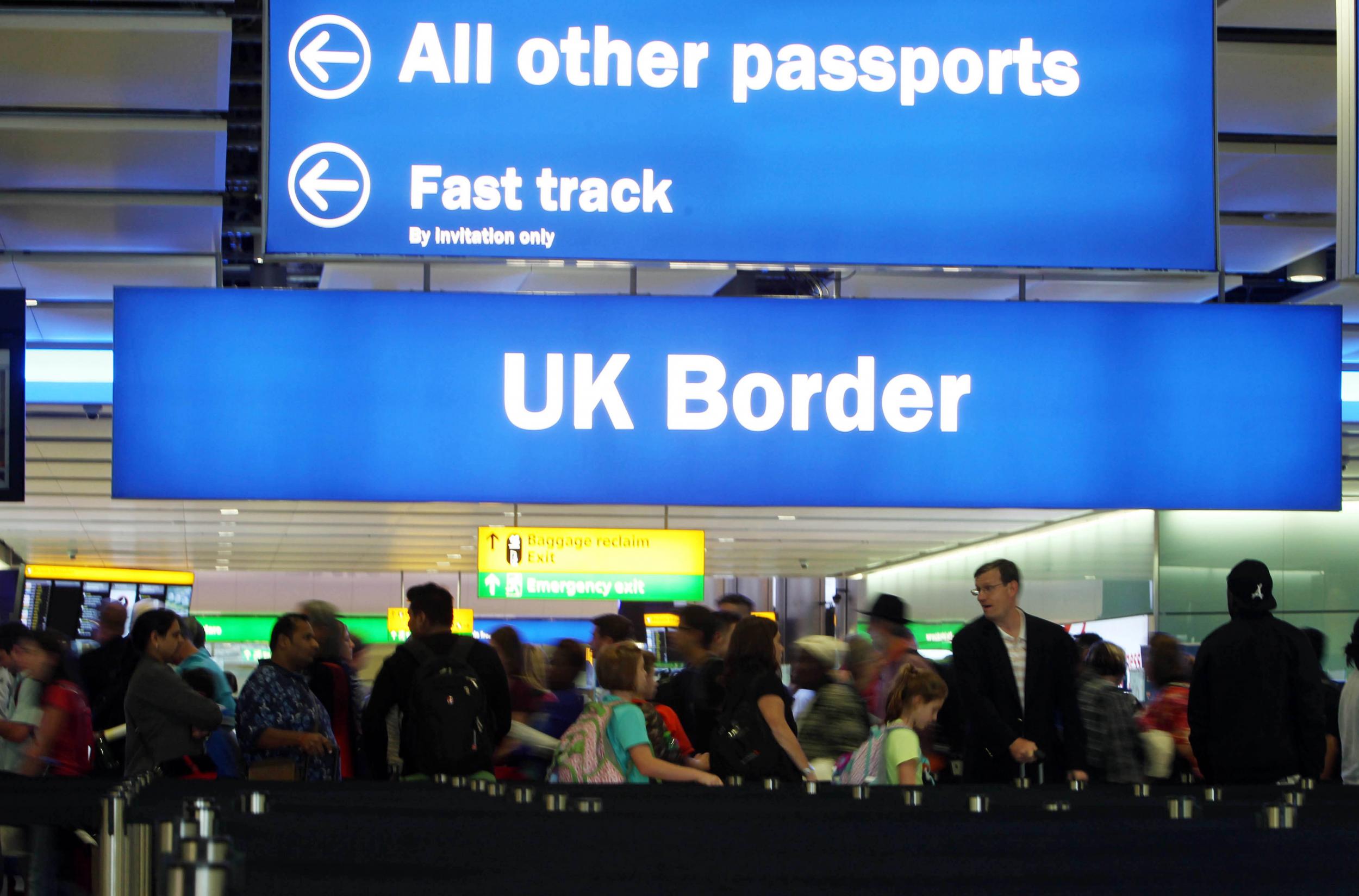Theresa May must drop 'tens of thousands' net migration target because it 'undermines' public trust, say MPs
Voters expect 'practical steps' to cut the number of people entering the country, says Home Affairs Committee - rather than a target that is forever missed

Your support helps us to tell the story
From reproductive rights to climate change to Big Tech, The Independent is on the ground when the story is developing. Whether it's investigating the financials of Elon Musk's pro-Trump PAC or producing our latest documentary, 'The A Word', which shines a light on the American women fighting for reproductive rights, we know how important it is to parse out the facts from the messaging.
At such a critical moment in US history, we need reporters on the ground. Your donation allows us to keep sending journalists to speak to both sides of the story.
The Independent is trusted by Americans across the entire political spectrum. And unlike many other quality news outlets, we choose not to lock Americans out of our reporting and analysis with paywalls. We believe quality journalism should be available to everyone, paid for by those who can afford it.
Your support makes all the difference.Theresa May must drop her target to slash net migration to “the tens of thousands” because it “undermines” the public’s trust in politics, MPs say.
People expect “practical steps” to cut the number of people entering the country, rather than a target that has been missed year-on-year, the Commons Home Affairs Committee warned.
Its report is the latest strong criticism of the immigration goal which the Prime Minister has insisted on keeping, despite growing opposition - including from within her own Cabinet.
The Independent and Open Britain, which is pressing for a soft Brexit, are running a Drop the Target campaign calling for the “tens of thousands” policy to be dropped.
Now that campaign has been given backing by the influential committee, in a report which also fears the scale of illegal immigration have grown because of a lack of official data.
It concluded: “The Government’s existing net migration target set at “the tens of thousands” is not working to build confidence or consent.
“The continued discrepancy between the target and reality has damaged the public’s view of the immigration system because it undermines trust in the state’s ability to control migration in the way it intends or to deliver on its plans.
“Setting a long-term target or aspiration does not solve the challenge of achieving credibility, as people want to see practical steps that can be taken in the short-term.”
The target of reducing net migration to tens of thousands was first set by David Cameron at the beginning of the coalition government in 2010, but that figure has never been achieved.
It fell by nearly a third in the year to last June – in the first full year of data since the Brexit referendum – but still stood at 230,000, way above the benchmark.
The Home Affairs Committee called for a switch to a Canada-style model that uses evidence to come up with a “framework” of targets and controls for different types of immigration.
Its report also suggested an annual migration report to set out the economic contribution from migration, as well as the impacts, and actions on skills and integration.
There should be better criminal and security checks at borders, more weight given to high-skilled workers in the immigration system and a permanent resettlement programme for asylum seekers.
And foreign students, who are currently part of the UK's net migration statistics, should be removed from the target altogether, the MPs said.
Ministers are already braced for a defeat on counting foreign students, with MPs poised to bring forward and win an amendment to a new Immigration Bill later this year.
But a Home Office spokesman said net migration had fallen steadily “over the past four quarters”, adding: “The British people sent a very clear message in the EU referendum, they want more control of immigration and our borders.”
And, on wider immigration policy, he added: “We are making it harder than ever before for those with no right to be here to remain in the UK.
“However, we also believe that more analysis of the scale and nature of the problem of illegal immigration is needed in order to develop appropriate policy responses and reassure the public that the issue is being addressed seriously.”
Join our commenting forum
Join thought-provoking conversations, follow other Independent readers and see their replies
Comments